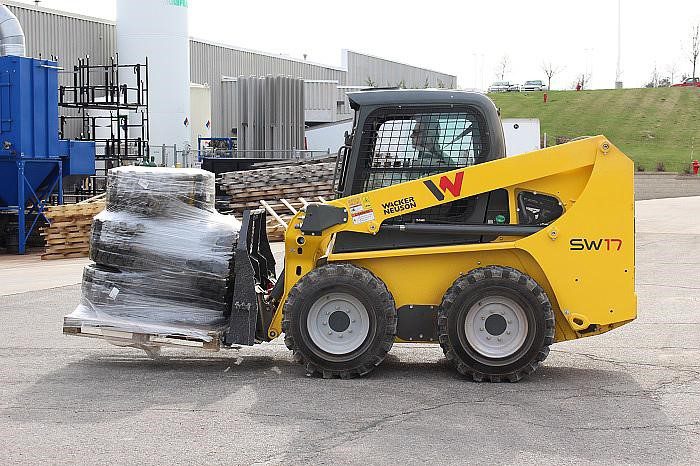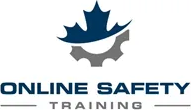Skid Steer Operators on Canadian Construction Sites

Essential Knowledge for Skid Steer Operators on Canadian Construction Sites
Skid steer loaders, versatile and compact construction machines, play a crucial role in various tasks on Canadian construction sites. Whether it’s excavation, material handling, or site cleanup, skilled operators are essential for safe and efficient operations. However, the role of a skid steer operator extends beyond merely driving the machine. In Canada, where safety regulations and environmental considerations are paramount, skid steer operators must possess a comprehensive understanding of their responsibilities, safety protocols, and operational best practices. This article delves into the essential knowledge that skid steer operators need to know when working on construction sites in Canada.
Understanding Regulatory Compliance: Operating a skid steer on a Canadian construction site requires compliance with various federal, provincial, and municipal regulations. Skid Steer Operators on Canadian Construction Sites must familiarize themselves with relevant legislation such as the Occupational Health and Safety Act, Construction Regulation, and specific industry standards applicable in their jurisdiction. This includes obtaining necessary certifications or licenses, adhering to equipment inspection requirements, and following prescribed safety protocols.
Safety Procedures and Precautions: Safety is paramount in construction environments, and skid steer operators bear a significant responsibility in ensuring the safety of themselves and others on-site. Before commencing work, operators must conduct a pre-operational inspection of the skid steer, checking for any mechanical issues or safety hazards. They should also wear appropriate personal protective equipment (PPE), including hard hats, high-visibility vests, steel-toed boots, and ear protection.
Moreover, Skid Steer Operators on Canadian Construction Sites need to be vigilant about their surroundings, constantly scanning for potential hazards such as uneven terrain, overhead obstructions, or proximity to other workers and equipment. Clear communication with ground personnel using hand signals or two-way radios is essential to prevent accidents and coordinate movements effectively.
Training and Certification: To operate a skid steer safely and competently, operators must undergo thorough training and obtain the necessary certification. Accredited training programs provide instruction on skid steer operation, maintenance, and safety procedures, including proper use of controls, load capacity limitations, and emergency protocols. Certification demonstrates competency and ensures that operators possess the skills and knowledge required to perform their duties safely on construction sites.
Environmental Considerations: In addition to safety concerns, skid steer operators must be mindful of environmental regulations and best practices when working on construction sites in Canada. This includes minimizing soil disturbance, preventing erosion, and implementing measures to control sediment and runoff. Operators should avoid operating the skid steer in environmentally sensitive areas such as wetlands or protected habitats, and adhere to any local regulations regarding noise and emissions.
Proper Equipment Operation: Skid steer loaders are versatile machines capable of performing various tasks with different attachments, including buckets, forks, augers, and hydraulic breakers. Skid steer operators must be proficient in attaching, detaching, and operating these attachments safely and efficiently. They should understand the limitations and capabilities of each attachment and select the appropriate one for the task at hand.
Furthermore, operators need to master the operation of the skid steer’s controls, including steering, acceleration, and hydraulic functions. Smooth and precise control inputs are essential for maneuvering the machine effectively, especially in tight spaces or crowded work areas.
Maintenance and Inspections: Regular maintenance and inspections are vital to ensuring the safe and reliable operation of skid steer loaders. Operators should follow manufacturer guidelines for routine maintenance tasks such as fluid checks, filter replacements, and lubrication. They should also conduct daily pre-operational inspections to identify any signs of wear, damage, or mechanical issues that could compromise safety or performance.
Additionally, operators should be trained to recognize common symptoms of equipment malfunction, such as unusual noises, vibrations, or fluid leaks, and take prompt action to address them. Reporting maintenance concerns to supervisors or equipment maintenance personnel is crucial for preventing accidents and minimizing downtime.
Communication and Collaboration: Effective communication and collaboration are essential for a smooth and safe construction site operation. Skid steer operators must coordinate their activities with other workers, equipment operators, and supervisors to ensure that work proceeds efficiently and safely. This includes sharing information about task requirements, potential hazards, and operational logistics, as well as responding promptly to instructions or warnings from colleagues.
Skid Steer Operators on Canadian Construction Sites play a vital role in construction projects across Canada, performing a range of tasks that contribute to the progress and success of building initiatives. However, with this responsibility comes the obligation to prioritize safety, regulatory compliance, and environmental stewardship. By acquiring the necessary training, adhering to safety protocols, and staying vigilant on-site, skid steer operators can contribute to the creation of safe, productive, and sustainable construction environments in Canada.
Categories
- Aerial Lift
- ATV Training
- Bear Awareness
- Chainsaw Training
- Confined Space
- Defensive Driving
- Forklift Training
- Lockout Tagout
- Online Safety Training
- Overhead Crane
- Pipeline Construction Safety Training
- Propane Handling
- Safety Training Benefits
- Scissor Lift
- Skid Steer Training
- Space Awareness
- TDG
- Telehandler Forklift
- Traffic Control
- Train the Trainer course
- Training Course
- Uncategorized
- WHMIS
- Workplace Harassment and Violence Preventiont
